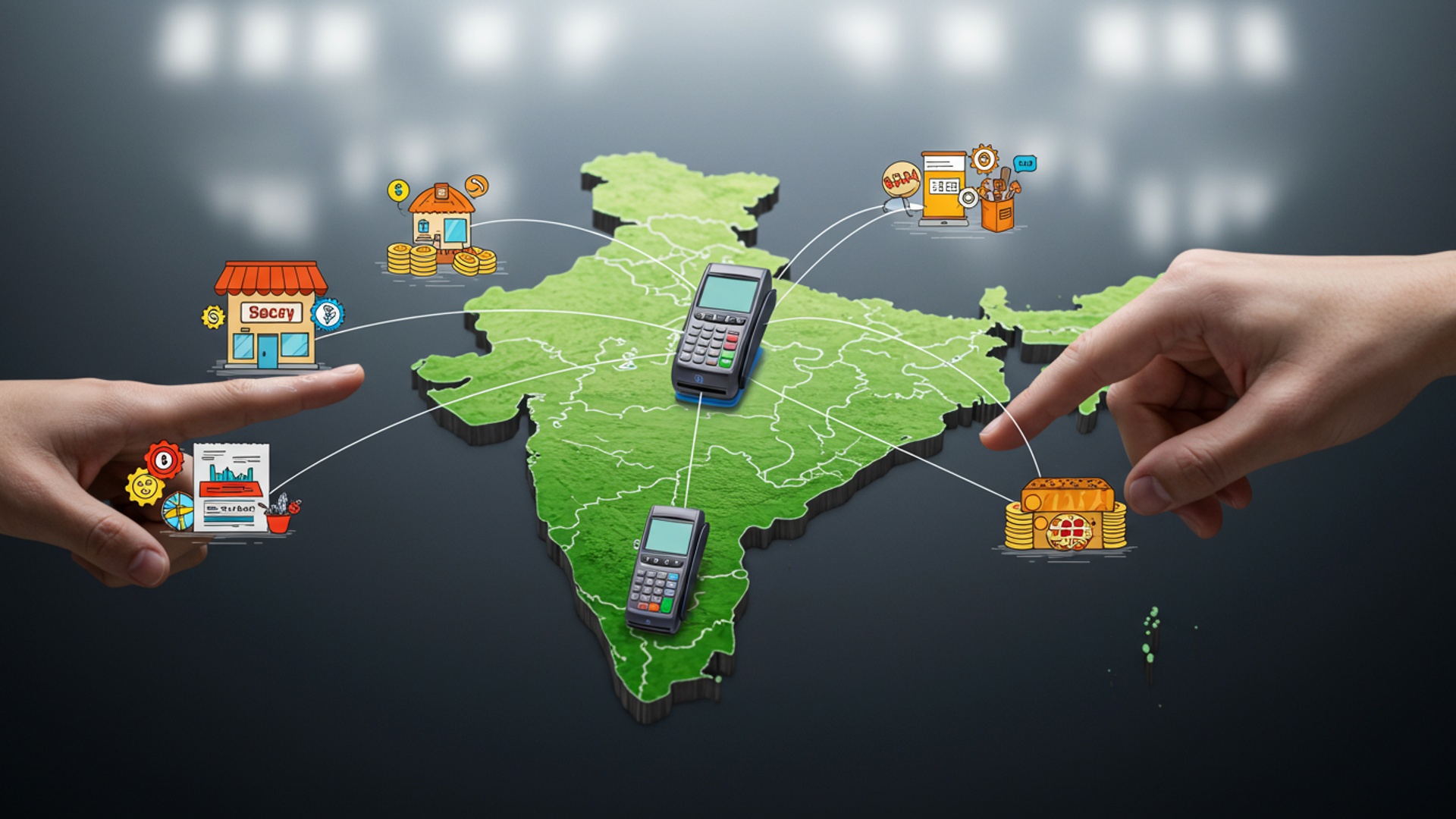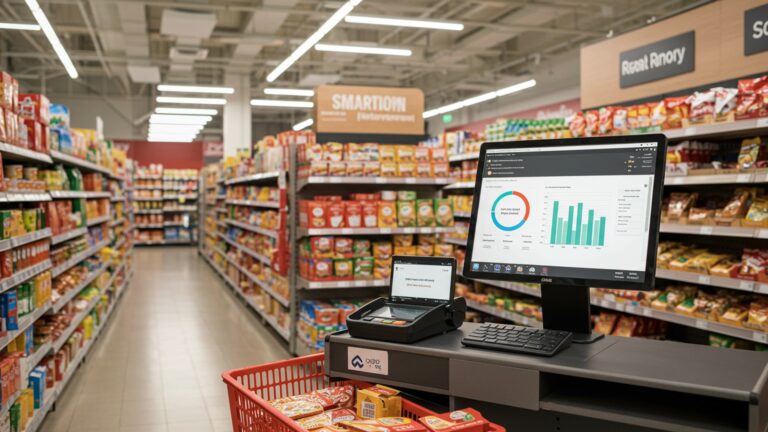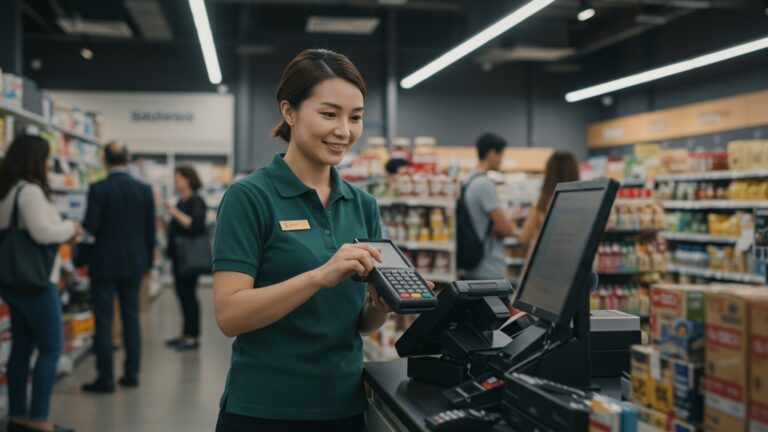Find the Best POS Software in India A Comprehensive Buying Guide
The Indian retail and hospitality sectors are experiencing a significant digital transformation, where a robust Point-of-Sale (POS) system transcends simple transaction processing to become the operational backbone. Businesses, from burgeoning QSRs in metros to traditional family-run textiles in tier-2 cities, grapple with a multitude of options when seeking the best POS software in India. Modern solutions now integrate seamlessly with e-commerce platforms, facilitate instant UPI payments, offer real-time inventory management. ensure GST compliance, moving far beyond basic billing. Identifying the ideal cloud-based system capable of scaling with your unique operational demands, while providing actionable analytics and enhancing customer experiences, presents a complex yet critical decision for sustainable growth in this dynamic market.

Understanding Point-of-Sale (POS) Software
Point-of-Sale (POS) software is the central nervous system for modern businesses, particularly in a dynamic market like India. At its core, a POS system facilitates transactions between a customer and a business. But, today’s POS software extends far beyond simple sales processing. It is an integrated solution that manages various aspects of business operations, from inventory and customer data to employee performance and financial reporting.
For Indian businesses, embracing a robust POS solution is not merely a convenience; it’s a strategic imperative. The competitive landscape, coupled with evolving consumer expectations for seamless shopping experiences, necessitates efficient and accurate operational tools. A well-chosen POS system can streamline operations, reduce human error, enhance customer satisfaction. provide invaluable insights for business growth. When you’re looking for the best POS software in India, understanding these foundational aspects is critical to making an informed choice that aligns with your operational goals.
Core Features to Look For
Selecting the best POS software in India requires a thorough evaluation of its feature set. A truly comprehensive solution offers more than just transaction processing. Here are the essential features to prioritize:
- Sales & Transaction Management
- Inventory Management
- Customer Relationship Management (CRM)
- Reporting & Analytics
- Employee Management
- Payment Processing Integration
- Multi-store Management
- Offline Mode
This is the fundamental function, encompassing quick and accurate sales processing, returns, exchanges, discounts. gift card management. Look for intuitive interfaces and support for various payment methods.
Critical for any business, this feature tracks stock levels in real-time, manages product variants (size, color), automates reorder alerts, handles stock transfers between multiple locations. performs physical inventory counts. Effective inventory management is key to preventing stockouts and overstocking.
A built-in CRM helps capture customer data, track purchase history, manage loyalty programs. facilitate targeted marketing campaigns. Understanding your customers is vital for repeat business and personalized service.
Comprehensive reports on sales performance, product popularity, employee productivity. customer trends are indispensable for strategic decision-making. Look for customizable dashboards and the ability to export data.
This feature handles employee clock-ins/outs, tracks sales performance per employee, manages commissions. controls access permissions based on roles. It ensures accountability and streamlines workforce management.
Seamless integration with various payment gateways, including UPI, credit/debit cards, mobile wallets. cash, is crucial in India. Ensure the system supports secure and fast payment processing.
For businesses with multiple outlets, the ability to manage inventory, sales. employees across all locations from a centralized dashboard is a significant advantage.
Essential in areas with unreliable internet connectivity, an offline mode allows the POS system to continue functioning and process transactions, syncing data once connectivity is restored.
Industry-Specific Considerations
The best POS software in India isn’t a one-size-fits-all solution. Different industries have unique operational requirements that their POS system must address. Tailoring your selection to your specific business type is paramount.
- Retail (Fashion, Electronics, Grocery)
- Fashion
- Electronics
- Grocery
- Restaurants/Cafes
- Table Management
- Kitchen Display System (KDS)
- Menu Management
- Order Customization
- Delivery Integration
- Salons/Spas
- Appointment Scheduling
- Staff Management
- Client History
- Service Businesses (Repair Shops, Clinics)
- Service Tracking
- Customer History
- Appointment Management
Needs robust inventory management for product variants (sizes, colors), barcode scanning, customer loyalty programs. easy return/exchange processes.
Requires detailed serial number tracking, warranty management. potentially service management integration.
Demands fast checkout, support for weighing scales, batch tracking for perishable goods. robust inventory management for thousands of SKUs.
Ability to manage table layouts, assign orders to tables. split/merge bills.
Integration with a KDS for efficient order communication to the kitchen staff.
Easy updates for menu items, prices. modifiers.
Handling special requests and dietary restrictions.
Seamless integration with food delivery platforms.
Integrated booking system for services and staff.
Tracking service commissions, individual schedules. client preferences.
Detailed records of services availed, products purchased. notes.
Managing work orders, service statuses. technician assignments.
Maintaining detailed records of services performed and parts used.
Scheduling and managing client appointments.
Cloud-Based vs. On-Premise POS
When searching for the best POS software in India, a fundamental decision involves choosing between cloud-based and on-premise solutions. Each model offers distinct advantages and disadvantages.
A cloud-based POS system operates over the internet. The software and data are hosted on remote servers managed by the vendor. Businesses access the system via a web browser or dedicated app on their devices (tablets, smartphones, computers).
An on-premise POS system, conversely, involves installing the software directly on the business’s own computers and servers. The data is stored locally. the business is responsible for its maintenance, security. updates.
| Feature | Cloud-Based POS | On-Premise POS |
|---|---|---|
| Cost Structure | Subscription-based (monthly/annually), lower upfront cost. | Higher upfront cost for software license and hardware, lower recurring fees. |
| Accessibility | Access from anywhere with internet, on multiple devices. | Primarily accessible on-site; remote access may require complex setups. |
| Maintenance & Updates | Managed by vendor, automatic updates, minimal IT burden. | Managed by business, requires internal IT staff or third-party support. |
| Scalability | Easily scalable, add/remove users or locations as needed. | Scaling often requires additional hardware and software licenses. |
| Data Security | Vendor responsible for security, often with robust measures. | Business responsible for all data security and backups. |
| Offline Capability | Many offer an offline mode that syncs when online. | Fully functional offline as data is local. |
| Integration | Easier integration with other cloud services (e-commerce, accounting). | Integration can be more complex and require custom development. |
| Customization | Generally less customizable to core functions due to multi-tenancy. | Higher degree of customization possible with local control. |
Key Factors for Selection
Beyond features, several critical factors influence which solution will be the best POS software in India for your enterprise. Consider these carefully:
- Scalability
- Ease of Use
- Cost
- Customer Support
- Customization
- Security
- Integration Capabilities
Your business will grow. your POS system should be able to grow with it. Look for a solution that can easily accommodate additional terminals, employees, locations. increased transaction volumes without a complete overhaul.
An intuitive, user-friendly interface reduces training time for staff, minimizes errors. speeds up checkout processes. Conduct demos and trials to assess the system’s usability.
This includes not just the subscription or license fee. also hardware costs, installation, training. ongoing support. Be wary of hidden fees. Compare total cost of ownership (TCO) over several years.
Reliable and responsive customer support, particularly in the local language and time zone, is invaluable. Check for 24/7 availability, multiple support channels (phone, email, chat). a comprehensive knowledge base.
While a robust out-of-the-box solution is good, the ability to customize certain aspects—like reports, receipt formats, or specific workflows—can be crucial for unique business needs.
Data security is paramount. Ensure the POS system complies with industry standards for payment processing (PCI DSS) and data protection. This includes encryption, secure logins. regular backups.
A truly powerful POS system integrates seamlessly with other essential business tools, such as e-commerce platforms, accounting software (e. g. , Tally, Zoho Books), marketing automation tools. third-party payment gateways.
Compliance and Regulatory Aspects in India
Operating a business in India comes with specific regulatory requirements that your POS software must inherently support. Choosing the best POS software in India means ensuring it is compliant with local laws and standards:
- GST Compliance
- Calculating GST accurately on all products and services.
- Generating GST-compliant invoices (tax invoices, bill of supply).
- Providing detailed reports for GST filing (GSTR-1, GSTR-3B).
- Handling different GST rates for various product categories.
- Data Privacy
- Payment Gateway Regulations
The Goods and Services Tax (GST) regime is central to business operations in India. Your POS software must be capable of:
While India’s data protection laws are evolving (Digital Personal Data Protection Act, 2023), it’s crucial to select a POS system that prioritizes customer data privacy and security. This includes secure data storage, access controls. transparent data handling policies.
Ensure the POS system’s integrated payment solutions comply with Reserve Bank of India (RBI) guidelines for digital payments, including data localization rules and security standards for transaction processing.
Evaluating Potential POS Solutions
Once you’ve shortlisted potential candidates for the best POS software in India, a structured evaluation process is essential:
- Request Demos and Utilize Trial Periods
- Read Reviews and Testimonials
- Assess Vendor Reputation
- interpret the Implementation Process
- Check for Hardware Compatibility
Never commit to a system without seeing it in action. Most reputable vendors offer free demos and trial periods. Use this time to test all critical features relevant to your business. Involve key staff members in the evaluation process.
Look for independent reviews on trusted platforms. Pay attention to feedback regarding customer support, ease of use. reported issues. Local reviews from Indian businesses can be particularly insightful.
Research the vendor’s track record, stability. commitment to ongoing development and support. A long-standing, reliable vendor is generally a safer bet.
Clarify how long implementation will take, what kind of training is provided. what support you can expect during the transition phase. A smooth onboarding process is vital.
Ensure the software is compatible with your existing hardware (if any) or that the vendor can provide suitable hardware solutions (scanners, receipt printers, cash drawers, card readers).
Actionable Takeaways
To successfully find the best POS software in India for your business, follow these actionable steps:
- Create a Detailed Requirements Checklist
- Prioritize Your Needs
- Plan for Future Growth
- Involve Your Team
- Don’t Rush the Decision
- Focus on Total Cost of Ownership (TCO)
Before you even start looking, list all the essential features, industry-specific needs, budget constraints. scalability requirements unique to your business. This will serve as your guiding document.
Differentiate between “must-have” and “nice-to-have” features. This helps in narrowing down options and making trade-offs if necessary.
Choose a system that can adapt to your evolving business needs. Consider potential expansion, new product lines, or additional services you might offer in the future.
Get input from your sales staff, inventory managers. other key personnel who will be using the system daily. Their feedback is invaluable for ensuring user acceptance and practical functionality.
Take your time to research, compare, demo. negotiate. A POS system is a long-term investment that will significantly impact your business operations and profitability.
Look beyond just the upfront price. Factor in ongoing subscription fees, hardware upgrades, support costs. potential training expenses over a 3-5 year period.
Conclusion
Navigating the Indian POS landscape can feel daunting. remember, the ‘best’ software is ultimately the one that perfectly aligns with your specific business pulse. This guide has equipped you with the framework; now it’s time to act. My personal tip? Don’t just compare feature lists; actively leverage free trials. I once saw a Delhi-based saree boutique owner transform her inventory management simply by test-driving a system for a week, realizing its intuitive interface was a game-changer for her non-tech-savvy staff. With India’s rapid adoption of UPI and the ever-evolving GST compliance, ensure your chosen solution offers robust, localized integrations. A cloud-based system, for instance, isn’t just a trend; it’s a strategic asset for scalability, allowing you to manage operations from anywhere, a boon for multi-outlet businesses or even just managing stock from home. Your decision today isn’t just about a billing system; it’s about investing in efficiency, customer satisfaction. future growth. Take that informed step forward; your business will thank you for it.
More Articles
How to Choose the Best POS Software in India for Your Business
A Comprehensive Guide to Mastering Essential POS Software Features
Learn How Cloud Based POS Software Boosts Business Efficiency
Discover How to Optimize Your Business with Smart POS Billing Software
How to Integrate Billing and POS Software for Maximum Profit
FAQs
What exactly is POS software and why do I need it for my business in India?
POS, or Point of Sale, software is a system that helps you manage transactions, track inventory, process payments. often handles customer data all from the point where a sale is made. For Indian businesses, it’s crucial for streamlining operations, ensuring accurate sales and stock management, simplifying GST compliance. enhancing customer experience by supporting various local payment methods.
What are the absolute must-have features in a good POS system for my business?
When looking for POS software, prioritize essential features like robust inventory management, detailed sales tracking, support for diverse payment processing (including UPI and card payments), customer relationship management. comprehensive reporting tools. Integration with accounting software is also a huge plus. Depending on your business type, you might also need features like table management for restaurants or barcode scanning for retail.
How much should I expect to pay for POS software in India? Is it very expensive?
The cost of POS software in India can vary significantly based on the features, provider. whether you choose a cloud-based or on-premise solution. You can find subscription-based models starting from a few hundred rupees per month for basic plans, scaling up to several thousands for more advanced, enterprise-level systems. It’s wise to look beyond just the price tag and consider the overall value, features. support offered.
Should I go for cloud-based or on-premise POS software? What’s the main difference?
Cloud-based POS software operates over the internet, allowing you to access it from anywhere on any device, with updates and maintenance handled by the provider. It’s generally more flexible and has lower upfront costs. On-premise software is installed directly on your computers and servers, giving you more control but requiring you to manage upkeep and updates yourself. For most small to medium Indian businesses, cloud-based is often the more convenient and cost-effective choice due to its flexibility and ease of use.
With so many options, how do I actually pick the best POS software for my specific business needs?
To pick the best, start by clearly defining your business’s unique requirements and budget. Research providers known in the Indian market, read user reviews. definitely take advantage of free trials or demos. Focus on scalability, ease of use. the quality of customer support. Also, ensure it integrates smoothly with any existing systems you use, like accounting software, to create a cohesive operational environment.
What kind of support should I expect after I buy the software. is it hard to set up?
A reliable POS provider should offer comprehensive support, including initial setup assistance, thorough training for your staff. ongoing technical support for any issues. Look for providers with local support in India, as this can be incredibly helpful for quick resolutions. While setup difficulty varies, most modern POS systems are designed to be user-friendly, often featuring guided onboarding processes to help you get up and running smoothly without much hassle.
Does POS software help with Indian tax compliance, like GST?
Absolutely! A key benefit of good POS software for Indian businesses is its ability to simplify tax compliance, especially with GST. It can automatically calculate GST on sales, generate GST-compliant invoices. produce detailed reports that make filing your GST returns much easier and more accurate. This can save you a lot of time and help avoid potential errors.






